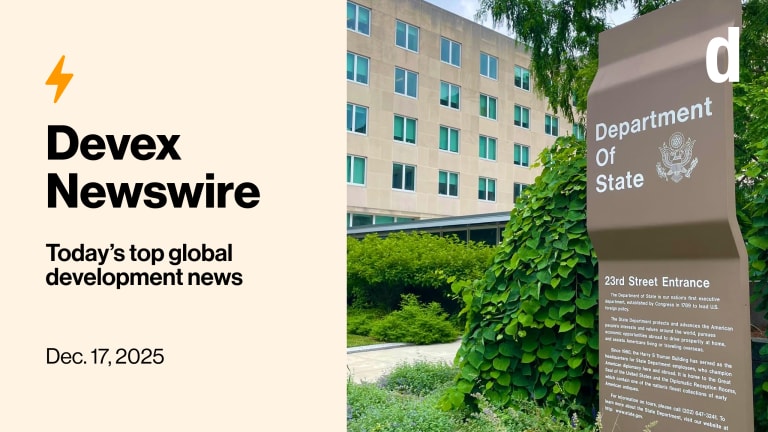
Uncertainty remains for the U.K. Department for International Development, U.S.-Iran tensions hinder aid in Iraq, and a clash over asylum-seekers in the Northern Triangle region. This week in development:
The U.K. development community has begun 2020 with more questions than answers about the fate of the Department for International Development. After the Conservative Party's election victory in December, rumors abounded that newly empowered Prime Minister Boris Johnson would merge DFID into the Foreign & Commonwealth Office — something he has threatened to do in the past — and aid advocates scrambled to make the case for the department to be spared. After a long silence over the holiday period, there was a brief moment of relief this week when U.K. media reported that DFID would remain independent. The celebrations were short-lived, however, as news emerged that the development brief may nonetheless be handed to the foreign secretary. For now, there have been no official announcements, and there may be no further clarity until early February, when a post-Brexit Cabinet reshuffling is expected.
Humanitarian work in Iraq is being hampered by the U.S.-Iran conflict that has escalated in the past week with the U.S. killing of Iranian Gen. Qassem Soleimani and Iran’s missile attacks on military bases housing American troops in Iraq, Oxfam reports. Heightened security concerns, road checkpoints, and travel difficulties have forced the organization to suspend work in three locations where it was delivering cash aid. Oxfam temporarily closed its offices in the country and asked staff to work from home. “If we have to continue the suspension for a few weeks more, 100,000 of the most vulnerable people will be affected,” said Oxfam Iraq Country Director Gonzalez Rodriguez, adding that the organization will do its best to continue its work. Late last year, Devex’s Michael Igoe was in Erbil, Iraq, where he reported on U.S. aid efforts, investment for entrepreneurship in the region, and a once-vacant refugee camp that’s been reopened with the help of refugees.
The outgoing Guatemalan government is pushing back on U.S. assertions that a third-party agreement signed between the two countries last summer allows the U.S. to send Mexican asylum-seekers to Guatemala. As part of an effort to reduce migration, the Trump administration signed agreements with the Northern Triangle countries of Guatemala, Honduras, and El Salvador. The agreements would allow the U.S. to send asylum-seekers to those countries instead to apply for such international protections. Over the weekend, U.S. Citizenship and Immigration Services told asylum officers that Mexicans could now be sent to Guatemala, which was not a part of the original deal signed by President Jimmy Morales. Morales, who is set to leave office next week, told reporters Wednesday that only Hondurans and Salvadorans — who would have to travel through his country on their way to the U.S. — could be sent there. Refugee advocates say Northern Triangle countries are not prepared to provide appropriate protections for vulnerable people fleeing violence and persecution.










